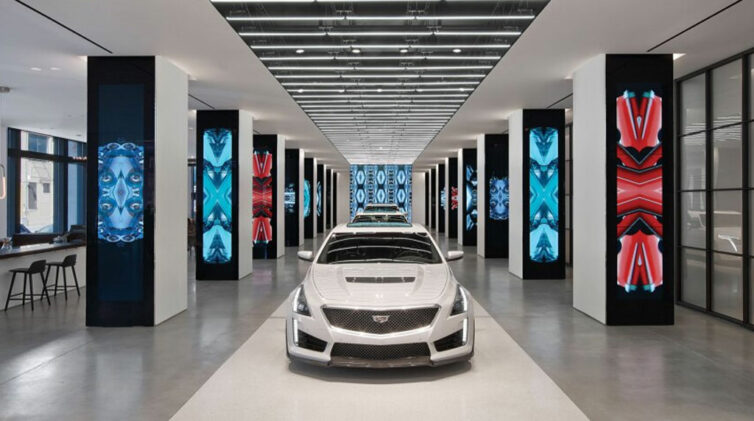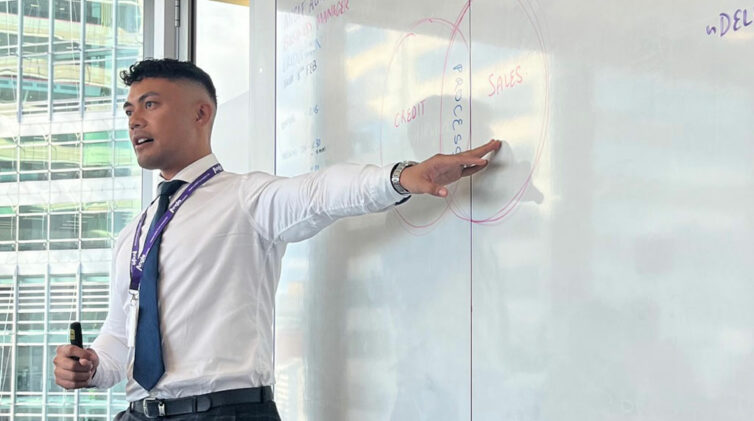Pitcher Partners Sydney partner and automotive expert Steven Bragg said that in the pandemic recovery, Australian dealers need to reassess their talent pools and take a different approach.
“The rebound in sales has a fairly long tail of six to 12 months based on the demand we have seen since June 2020,” he said.
“Australian dealers are going to be competing with many other businesses for good staff because the country’s net migration has gone negative for the first time in many decades.
“That makes it imperative for dealers to be thinking outside of the box and outside of the industry when they hire.”
Mr Bragg said hiring from the hospitality, travel and tourism industries “is a great place to find staff”.
These industries have been deeply affected by the pandemic with large numbers laid off.
“People from these industries would excel in the retail automotive industry as they have the skills that dealerships need to ensure the service component of the customer’s experience is delivered to standard,” he said.
But Mr Bragg said there has to be a note of caution as businesses rebuild.
“While dealers are likely looking to expand on the back of increased sales and demand, I caution dealers to ensure they have properly planned and budgeted for the additional staff,” he said.

Steve Bragg
“With JobKeeper rolling off in March and dealers traditionally over-staffed, the lessons learned in the pandemic cannot be forgotten or erased by a few good months trading.”
In the US, car dealers are back on the hunt for staff after laying off hundreds of thousands less than 10 months ago as the pandemic ground down sales.
Automotive News reports that after an 11-month period in which mass layoffs were followed by a near-equal hiring surge, many US dealerships are nearing pre-pandemic staffing levels as they continue to scout for new talent.
“It’s a striking rebound from the early days of the coronavirus crisis last spring when dealerships laid off or furloughed hundreds of thousands of employees,” the Automotive News report said.
It said that while many dealerships are hiring again — and even recruiting from industries hit harder by the pandemic than automotive retailing — they remain careful about the number of jobs they’re adding back.
US franchised dealerships have had a stable employment level of about 1.1 million people for several years prior to the pandemic, according to US Bureau of Labour Statistics records and the National Automobile Dealers Association (NADA).
Because of the pandemic, that figure fell to 888,200 by the end of April. It then recovered to 1.02m employees at the end of June, NADA said. By the end of the year, it was up to 1.08m.
US dealership recruitment technology firm Hireology is seeing the recovery but its CEO, Adam Robinson, still expects up to 10 per cent of jobs won’t return.
He said that’s because many dealers were over-staffed.
“We needed to get more efficient,” he told Automotive News.
“And we did. And I think we’ll stay there.”

Hireology estimated there were 28,485 open positions in auto retail at the end of December, a figure that grew to 39,790 by the end of January.
Public dealership groups made some of the biggest reductions in employment early in the pandemic, with many saying thousands of the cuts would be permanent.
The Automotive News 2021 Dealer Outlook Survey of 183 dealer executives conducted in January found that 31 per cent of respondents said they planned to hire to increase dealership head count this year.
An additional 41 per cent didn’t plan to add staff, and more than a quarter were unsure.
When asked in what area they expected their largest expense increase this year, the biggest group of respondents – 32 per cent – chose personnel/payroll costs.
As Mr Bragg said, many dealers in the US are turning to find staff in other industries, particularly the service and hospitality sectors.
US Bureau of Labor Statistics data shows that the automotive retail sector gained thousands of jobs in December, while the leisure and hospitality sectors shed hundreds of thousands of jobs.
Alpine Buick-GMC president Ivette Dominguez, located in Littleton, Colorado, said restaurant and hospitality workers were accustomed to working long hours and typically have good customer service skills.
Ms Dominguez, also the owner of six other outlets in four states, said people “have to be good to be hired by a great restaurant.”
“You have to be pleasant. You have to be knowledgeable. You have to have your product knowledge down.
“Such skills ‘translate really well’ to dealership sales.”
By Neil Dowling












 Read More: Related articles
Read More: Related articles

